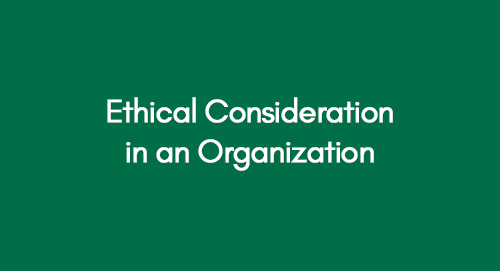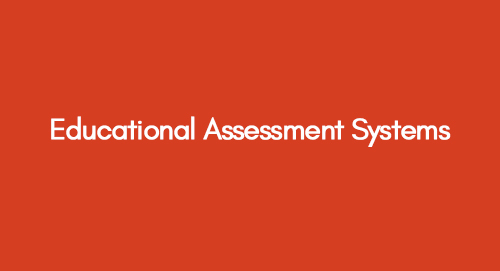
Ethical Consideration in an Organization
June 16, 2022
Brand Portfolio Strategies
July 6, 2022Venturing into the intimate narratives of personal journeys, this research seeks to unveil the kaleidoscope of emotions and complexities that define the 'coming out' experience. Through the lens of diverse voices, it endeavours to decode the intricate tapestry woven by self-discovery, societal expectations, and the quest for authenticity.
"Coming out" is a deeply personal and often life-changing experience that many individuals within the LGBTQ+ community go through. It's a process of self-discovery and self-acceptance that involves revealing one's sexual orientation or gender identity to friends, family, or society. The experience of 'coming out' is as diverse and unique as the individuals who undergo it.
Learn More About Research Question
Explore More About Research Question
This blog delves into the multifaceted aspects of coming out, aiming to explore the emotions, challenges, and transformations involved in this significant journey of self-disclosure. We will delve into the various stages, emotional complexities, and the impact on relationships and personal growth as individuals navigate the path of 'coming out,' shedding light on a deeply significant and often misunderstood chapter in many lives.
Embracing Authenticity: The Digital Path of Coming Out
"During my formative years, I grappled with the pressure to conform to societal expectations based on my background. It was a lengthy and arduous process, punctuated by painful experiences before I finally came to terms with the idea that my true feelings were valid. These were the necessary, albeit challenging, stages of my personal growth."
This theme delves into exploring the painful experiences associated with coming out. Discussing the passage of time and the gradual nature of this process can offer participants an opportunity to provide a comprehensive overview of their experiences, starting from the beginning. It is well-established that individuals discovering their diverse identities often encounter challenging and painful obstacles. As per Guittar and Rayburn's research (2016), members of the Lesbian, Gay, Bisexual, Transgender, and Queer (LGBTQ) community confront numerous challenges related to their identity. These challenges frequently require a strong personal affirmation, and, at times, due to their backgrounds, individuals may struggle to accept themselves within society.
The way society views and the perceptions of those close to you hold great significance. When it comes to coming out, societal acceptance is a pivotal and often painful aspect. Achieving certain societal benchmarks is often necessary for individuals to take pride in their identity (Lovelock, 2017). Consequently, societal acceptance plays a crucial role in fostering a sense of comfort and self-assurance in individuals regarding their authentic feelings.
Social media has played a crucial role in alleviating some of the pain associated with this challenging revelation. It has provided a support system comprising individuals from diverse backgrounds, enabling them to navigate their shared experiences with increased confidence. A notable example of this is YouTube, which offers a platform for these individuals to openly express their true feelings while maintaining a degree of anonymity from the broader public (Lovelock, 2017). This anonymity serves as a source of self-comfort, making it easier to candidly share their journeys of self-discovery without the same level of discomfort they might otherwise experience.
Experiential learning via social networking platforms has become a prevalent and invaluable tool in the process of coming out (Fox and Rolston, 2016). It enables individuals identifying as Lesbians, Gays, Queer, Transgender, and Bisexual to establish easy channels of communication to discuss and navigate their stages of coming out. This is particularly crucial because, without such online communities, finding like-minded individuals with similar experiences can be a daunting, if not impossible, task. Creating and participating in online communities fosters a sense of belonging and reassurance, as it helps individuals realize that they are not alone in their journey and that others share their experiences and can offer support and understanding.
Embracing Solitude: The Unconventional Journey of Self-Discovery and Authenticity
"Dating was strictly off-limits during my childhood. Additionally, I never considered myself particularly appealing, and I rarely received that kind of attention. My brother, on the other hand, was quite popular, and I often felt envious of him. In some respects, this lack of romantic attention provided me with a convenient distraction from self-reflection and self-discovery."
The absence of attention from those around us can sometimes catalyze self-realization, leading individuals to confront certain truths that might otherwise remain hidden. In a world where we have many choices regarding when, how, and to whom we reveal or keep information concealed (Jackson and Mohr, 2016), the quest for acceptance often prompts individuals to reevaluate their feelings and carefully consider with whom they can safely share their innermost thoughts and experiences.
When an individual experiences a lack of attention from society and its general populace, they often have more time for introspection and contemplation. In these circumstances, significant decisions can be made, unburdened by the often inconsiderate societal norms. This allows individuals to delve deep within themselves and discover their authentic passions, irrespective of societal expectations.
For instance, Kelly, a 22-year-old woman, shared her perspective on this matter, stating, "Coming out, in terms of myself, would probably be me accepting myself for loving who I want to love and not conforming to what society dictates – you know, like loving who I should love. That, to me, is coming out" (Guittar and Rayburn, 2016). This underscores the notion that 'coming out' is fundamentally about embracing one's true self and choosing love based on personal authenticity rather than societal pressures.
Nevertheless, this lack of social connection can also impact a person's mental well-being, potentially leading to feelings of depression, as humans are inherently social beings. However, on a more positive note, the absence of certain social relationships can result in more constructive consequences. According to Ryff (2014), life's challenges are occasionally considered integral to an individual's self-discovery. They can contribute to their increased resilience and resistance to conforming to the conventional norms and values of society.
Loneliness often stems from the disparity between the social relationships one desires and those attained (Grover, 2019). The quality of life tends to suffer when individuals fall short of achieving their desired relationships. Additionally, jealousy can have adverse effects, especially when witnessing others enjoying fulfilling social connections. While this solitude can offer individuals an opportunity for self-reflection and personal growth, its impact varies from person to person, as some individuals may experience feelings of depression and anxiety.
Beyond Norms: Challenges of Recognizing Divergent Sexual Orientations
"I didn't have a sudden epiphany where I thought, 'Hooray, I'm gay!' and it wasn't something I'd always been aware of. What I did understand was that my sexuality wasn't as straightforward as society often makes it out to be."
Embracing one's uniqueness and individuality is a positive aspect; still, when it comes to sexual differences, it often exposes individuals to negative comments and even ridicule, sometimes even from those close to them. Typically, the individuals may not be particularly content with this self-realization due to the societal norms and strict rules surrounding them. As per Guittar and Rayburn's findings (2016), friends, colleagues, and even strangers may seize the opportunity to point out and mock an individual if they discover variations in their sexual interests. Such behaviours have a demoralizing effect on a person and intensify the fear of openly discussing and acknowledging their unique sexual orientation.
As per the insights of 19-year-old gay man Brandon, the process of coming out is an ongoing journey characterized by three distinct stages. The initial stage involves self-discovery, followed by the second stage, where close friends and family become aware of one's identity. Finally, the third stage is marked by a natural disclosure of one's identity, even to strangers (Guittar and Ryburn, 2016). The evolution of the first stage is often attributed to the minimal attention individuals seek from society, leading to the neglect of their inner feelings and a sense of isolation.
These distinctions, particularly related to sexual interests, receive little encouragement in Asian countries, where conversations on such topics are often considered inappropriate. Research on sex education and related subjects is notably scarce in the Middle East (Kabbash, Zidan, and Salem, 2019). Consequently, recognising these differences is not highly valued in Asian countries, and individuals are frequently compelled to conform to societal norms and regulations.
Divergent sexual orientations have a significant impact on an individual's mental well-being, often resulting in heightened levels of stress and anxiety (Pukket et al., 2018). The presence of a substantial minority of individuals with such differences within the LGBTQ community can create considerable stress, often necessitating the intervention of healthcare professionals. Additionally, research has shown that older individuals tend to experience lower levels of stress related to their gender interests. In comparison, younger individuals often grapple with shame and embarrassment, making open communication about their identities more challenging (Pukket et al., 2018).
Redefining Identity: Challenging the Notion of 'Coming Out' and the Impact of Societal Expectations
I don't subscribe to the idea of 'coming out.' It implies that we're all concealing something and must be a grand revelation. I believe this notion can be intimidating for many. Expressing your true self is something you should do on your terms, at your own pace, and in your way.
This quote categorizes the ongoing process of 'coming out' as something that can be intimidating, emphasizing an element of secrecy that is not conducive to a healthy approach. It suggests there's no need for a grand announcement if one adheres to the concept of coming out; instead, it should be seen as a normal part of life. In the United Kingdom, sexual minorities now enjoy distinct legal rights and legislation that has helped dispel fear and feelings of exclusion stemming from societal norms that once prevailed (Magrath, Cleland, and Anderson, 2017). A comprehensive legal framework for sexual minorities not only safeguards their rights but also encourages those around them to support and respect their interests.
The notion of making a formal announcement about coming out can be an intimidating and challenging task. Hence, many gay men employ various methods to maintain their self-esteem while revealing their true identity concurrently (Chester, 2016). In a study conducted by Chester (2016), four participants explicitly expressed feelings of anxiety and fear when it came to disclosure, with one participant stating, "I was apprehensive about the potential consequences." Meanwhile, some individuals mentioned that "retracting their confession was a terrifying thought, and they were deeply unsettled by it."
In many cultures worldwide, if individuals do not explicitly disclose their sexual preferences, they are often presumed to be heterosexual. This phenomenon is frequently referred to as "compulsory heterosexuality" (Manning, 2016). The widespread assumption that everyone is straight is a significant source of anxiety for LGBTQ individuals, as it can make them feel negatively different and create hurdles in their journey of self-identity, understanding who they are, and embracing who they love.
The influence of culture and society is significant in easing the complexities of this challenging journey. In many cultural contexts, societal norms have established rigid boundaries regarding sexuality, and any deviation from these norms can be stigmatized (Manning, 2016). Consequently, culture and an individual's cognitive processes are important in this context. At times, individuals may struggle to come to terms with these differences within their minds, leading to strained social relationships and potential experiences of depression. One of the primary aspects that often becomes a casualty due to one's identity within the LBGQ community is personal relationships, which frequently entail an ongoing, painful, and anxiety-ridden struggle.
References
Chester, M.R., Sinnard, M.T., Rochlen, A.B., Nadeau, M.M., Balsan, M.J. and Provence, M.M., 2016. Gay men's experiences coming out online: A qualitative study. Journal of Gay & Lesbian Social Services, 28(4), pp.317-335.
Fox, J., and Ralston, R., 2016. Queer identity online: Informal learning and teaching experiences of LGBTQ individuals on social media. Computers in Human Behavior, 65, pp.635-642.
Grover, S., 2019. Loneliness: Does it need attention? Journal of Geriatric Mental Health, 6(1), p.1.
Guittar, N.A. and Rayburn, R.L., 2016. Coming out: The career management of one’s sexuality. Sexuality & Culture, 20(2), pp.336-357.
Jackson, S.D. and Mohr, J.J., 2016. Conceptualizing the closet: Differentiating stigma concealment and nondisclosure processes. Psychology of Sexual Orientation and Gender Diversity, 3(1), p.80.
Kabbash, I.A., Zidan, O.O. and Salem, S.M., 2019. Perceptions of Gender Roles in Sexual Relations and the Sexual Experiences of Medical Students in the Nile Delta of Egypt. Sexuality & Culture, 23(1), pp.310-324.
Lovelock, M., 2017. ‘Is every YouTuber going to make a coming-out video eventually?’: YouTube celebrity video bloggers and lesbian and gay identity. Celebrity Studies, 8(1), pp.87-103.
Magrath, R., Cleland, J. and Anderson, E., 2017. Bisexual erasure in the British print media: Representation of Tom Daley's coming out. Journal of Bisexuality, 17(3), pp.300-317.
Manning, J., 2016. Identity, relationships, and culture: A constitutive model of coming out. Kendall Hunt.
Puckett, J.A., Feinstein, B.A., Newcomb, M.E. and Mustanski, B., 2018. Trajectories of internalized heterosexism among young men who have sex with men. Journal of Youth and Adolescence, 47(4), pp.872-889.
Ryff, C.D., 2014. Self-realization and meaning-making in the face of adversity: A eudaimonic approach to human resilience. Journal of Psychology in Africa, 24(1), pp.1-12.
Get 3+ Free Dissertation Topics within 24 hours?




























